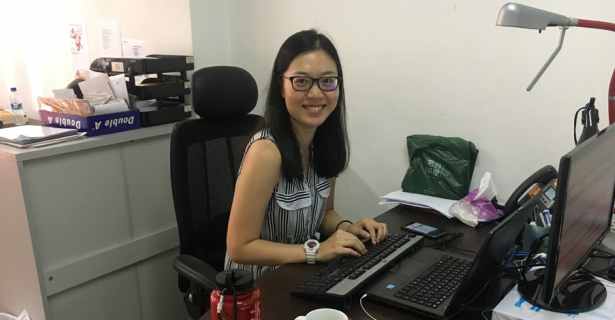I am an upcoming second-year student at the Fletcher School of Law and Diplomacy, spending my summer in Singapore for my internship with the Center for Humanitarian Dialogue (HD).
HD is a private diplomacy organization and an official partner to the United Nations. I first learned about HD when I was in Professor Eileen Babbitt’s class, Process of Negotiation, when we were doing a case study on peace talks between the Government of Indonesia and the Free Aceh Movement, the latter of which was seeking independence for the Aceh region of Sumatra from Indonesia. HD conducted several rounds of peace talks and after six years of hard work, the two parties reached an agreement ending the thirty-year insurgency. Now, Aceh is a semi-autonomous province of Indonesia. I was amazed by HD’s mediation work which involved a deep level of understanding, patience and creativitiy to design the peace process. I was lucky enough to obtain a three-month internship at their Singapore office for the summer.
HD tends to staff a small team of three to five people for each country, but this does not limit your scope of work. I am focusing my work on China-related projects, including the South China Sea, China-Africa and China-Myanmar. It is not hard to understand why HD is trying to engage China as the rising country is posed to be a reponsible big country and is actively involved in several global issues. However, the second largest economy does not necessarily have a rich experience in modern diplomacy matched with its military and economic power. Therefore, it is not easy for HD to get China on board for our projects, especially for issues like the South China Sea, as claimant nations can be emotionally stuck with their positions.
HD has been convening major claimants to the South China Sea in Expert Meetings to discuss encounters at sea by maritime law enforcement agencies, in this case majorly Coast Guards of these countries. The meetings contribute to enhancing confidence-building between nations and to brainstorming ways to reduce unpredicability in encounters at sea. However, HD is only be able to reach out to retired Chinese coast guard officials, not the current ones.
It is important for HD to always be thinking ahead. What if the Coast Guards of all these nations are not able to reach an agreement? If they do reach an agreement in this informal dialogue, how could we elevate the exchange to Track I, which means the official level? What are other topics that HD could explore diplomatically? Our director of Asia has put HD’s work in this way wisely: HD does start-up work for diplomacy for which we have to identify a new product, which is diplomatic space for potential conflicting clients. And we subsequently incubate and sttengthen the project. When it is mature enough, we deliver it to clients to fully develop its potential.
I very much enjoy diplomacy work and exposing myself to experts from different topics. However, mediation work requires solid research skills and bold imagination to be creative as well. When you sense a potential diplomatic area, there may not be experts that have already done work on that area. In this situation, you have to become an expert yourself and do research combining all handy information. This process could be lenghty and painful, especially for people like me who dislike sitting in the office for eight hours straight. Luckily, my boss understands my restlessness and has encouraged me to go visit scholars or officials to vary my research schedule.
I very much appreciate this experience, and I have the opportunity to go to China at the end of July to explore issues of interest. I am very lucky to be here to deepen my understanding about preventive diplomacy and mediation, and also to learn more about the type of work schedule that would best match my personality.

